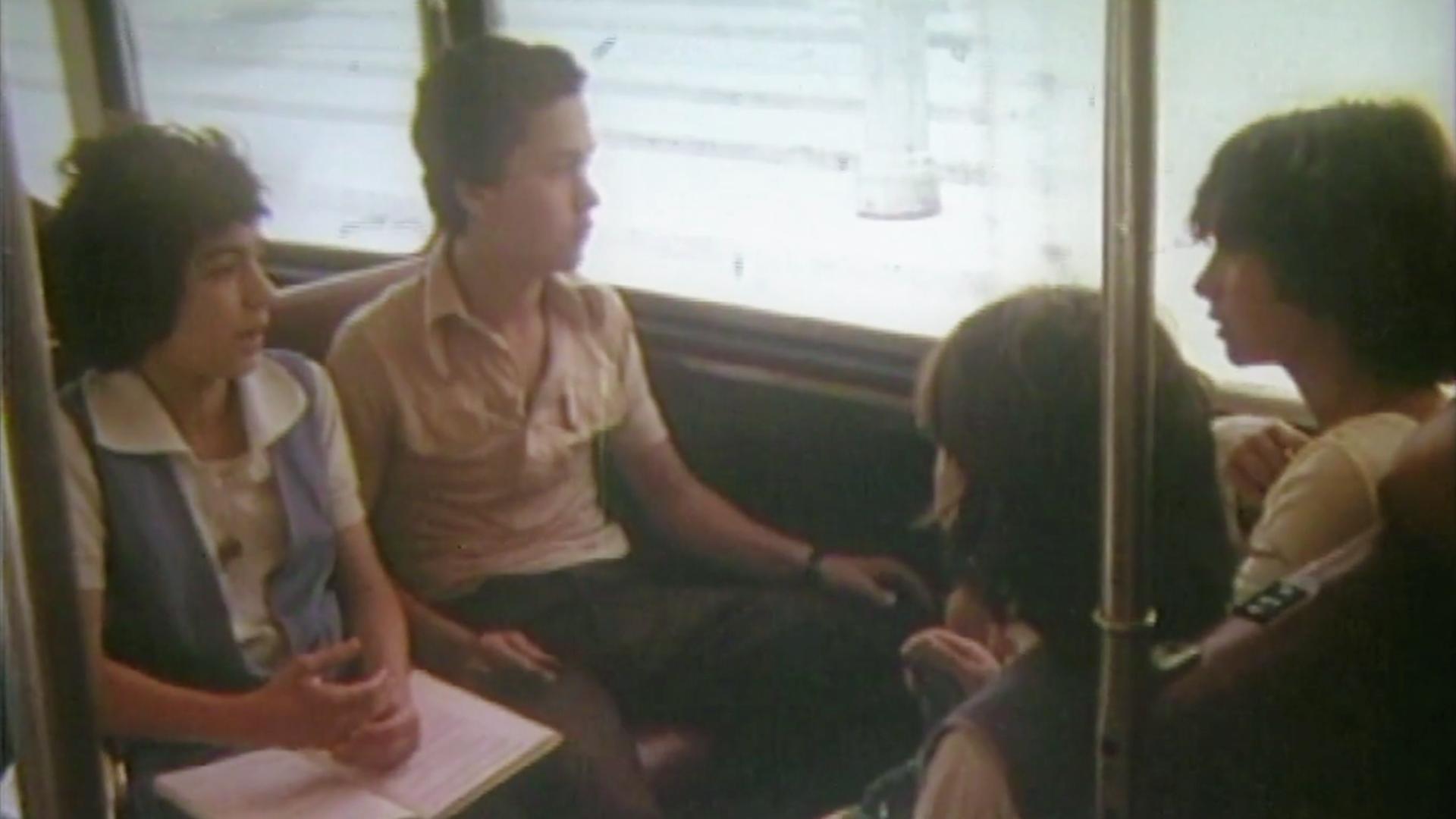
Encountering the real effects of destruction, the films in this Beirut-focused series complicate the relationship between fact and fiction, using poetry and other forms of intermediality to witness what emerges from ruins. Beirut, a city that has often been the site of sectarian, colonialist and imperialist violence, is a context which produces films that critically engage with images related to moments during, between, and after war and upheaval. At the center of this series is a retrospective of several early films by Jocelyne Saab, who uses documentary form to demonstrate the effects of violence in Lebanon and to challenge dominant western media perceptions and practices of filming and exhibiting war in Beirut. This series coincides with and honors the one year anniversary of the devastating Beirut Port explosion through the celebration of Lebanese filmmaking.
July will feature Jocelyne Saab’s Beirut trilogy, a series of landmark works in Lebanese cinema and masterpieces of the essay film form. Trained as a radio and television journalist, Saab turned her attention to documentary films at the start of the Lebanese Civil War. Saab’s commitment to and intimate interactions with the displaced, the exiled, and the dispossessed, mark her films and her quest to capture Beirut as uniquely her own.
Three years after the beginning of the Civil War, the filmmaker returns to her city for several months. Living between Lebanon and France, she tries to readapt to daily life in Beirut. Saab wanders the streets of the irrevocably changed city, rides buses, chats with refugees and peacekeepers, and reflects on the war’s toll during a brief moment of peace.
- Year1978
- Runtime48 minutes
- LanguageEnglish, Arabic
- CountryLebanon
- DirectorJocelyne Saab
- ProducerJocelyne Saab
- CinematographerOlivier Guenneau
- EditorPhilippe Gosselet
Encountering the real effects of destruction, the films in this Beirut-focused series complicate the relationship between fact and fiction, using poetry and other forms of intermediality to witness what emerges from ruins. Beirut, a city that has often been the site of sectarian, colonialist and imperialist violence, is a context which produces films that critically engage with images related to moments during, between, and after war and upheaval. At the center of this series is a retrospective of several early films by Jocelyne Saab, who uses documentary form to demonstrate the effects of violence in Lebanon and to challenge dominant western media perceptions and practices of filming and exhibiting war in Beirut. This series coincides with and honors the one year anniversary of the devastating Beirut Port explosion through the celebration of Lebanese filmmaking.
July will feature Jocelyne Saab’s Beirut trilogy, a series of landmark works in Lebanese cinema and masterpieces of the essay film form. Trained as a radio and television journalist, Saab turned her attention to documentary films at the start of the Lebanese Civil War. Saab’s commitment to and intimate interactions with the displaced, the exiled, and the dispossessed, mark her films and her quest to capture Beirut as uniquely her own.
Three years after the beginning of the Civil War, the filmmaker returns to her city for several months. Living between Lebanon and France, she tries to readapt to daily life in Beirut. Saab wanders the streets of the irrevocably changed city, rides buses, chats with refugees and peacekeepers, and reflects on the war’s toll during a brief moment of peace.
- Year1978
- Runtime48 minutes
- LanguageEnglish, Arabic
- CountryLebanon
- DirectorJocelyne Saab
- ProducerJocelyne Saab
- CinematographerOlivier Guenneau
- EditorPhilippe Gosselet